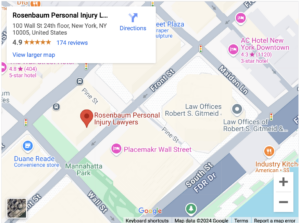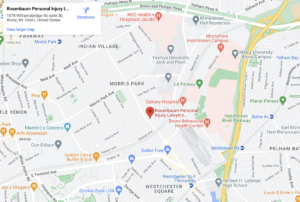Herniated Discs

Did you know that about 39 percent of American adults live with back pain? Back injuries are very common, especially as we get older, and they can severely diminish our lives. And one of the more common causes of back pain is herniated discs.
You may have heard of herniated discs before, but what are they, and how do you treat them? Read on to learn more about these injuries and whether you can get compensation for them.
Table of Contents
What Is a Herniated Disc?

Your spine is made up of bones called vertebrae with rubbery cushions called discs between them. These disks have a hard, rubbery exterior called the annulus and a soft, Jell-O-like interior called the nucleus. A herniated disc happens when part of the nucleus pushes out through a tear in the annulus.
You may also hear herniated discs called slipped discs or ruptured discs. In many cases, you won’t feel the symptoms of a herniated disc at the time of the injury. If you do have symptoms, they do tend to get better over time, and you may not know you herniated a disc until months after the fact.
Symptoms
There are several symptoms that may indicate you could have a herniated disc. The first symptom you might notice is pain in your arms or legs. If you herniated a disc in your lower back, you might feel pain in your hips and thighs. If you herniated a disc in your neck, you’ll likely feel pain in your shoulders and down into your arms, especially when you cough or sneeze.
You might also feel numbness in your limbs if you have a herniated disc. You may also notice weakness in these limbs. You might have trouble holding or lifting things, or you might find yourself stumbling over nothing.
Common Causes
Most herniated discs are long-term injuries, rather than the result of a traumatic accident. As we get older, those discs get less flexible and more prone to tearing. Repeated motions can cause these discs to rupture and the nucleus to start squeezing out.
Often, herniated discs are the result of a workplace injury, especially in jobs that involve physical and repetitive labor. These injuries are a common problem in the manufacturing industries in particular. In rare cases, a traumatic accident, such as a fall or a lifting accident, can cause a herniated disc.
Treatment
In most cases, the best treatment for a herniated disc is managing any pain you may feel. Your doctor may recommend non-prescription medications or muscle relaxers to help ease your pain. Cortisone injections and neuropathic medications may also be helpful.
Physical therapy may be helpful in alleviating your pain and improving your range of motion. In very rare cases, you may need surgery to fix the disc. This is only necessary if, in spite of treatments, you have poorly controlled pain, difficulty standing or walking, continuing numbness or weakness, and loss of bladder or bowel control.
What Compensation Could You Get?
If you’ve suffered a herniated disc in an accident, you could be entitled to compensation. There are three basic types of compensation in personal injury cases: punitive, economic, and non-economic.
Punitive damages are the rarest type to recovery in personal injury cases, as they come with a heavy burden of proof. These damages are meant to punish a defendant who acted in an especially awful manner during the course of an accident.
Economic damages help to make up for losses you’ve sustained that have an attached dollar value. This can include lost wages, medical expenses, property damage, loss of future earning potential, and so on.
Non-economic damages are meant to compensate you for losses that don’t come with an inherent dollar value. This may cover pain and suffering, emotional trauma, mental anguish, scarring and disfigurement, and more.
A personal injury lawyer will help you calculate all the damages you’re owed and fight for full and fair compensation in your case.
Statute of Limitations
In personal injury cases, you have a limited amount of time after an accident to file a claim. You can’t try to get damages for a car crash that happened twenty years ago, for instance. This time limit is called the statute of limitations, and once it’s passed, you won’t be able to get your case heard in a court of law.
In New York, the statute of limitations on personal injury cases is three years. Although this may seem like a long time, three years can fly by when you’re trying to recover from an injury. It’s important to contact a personal injury lawyer as soon as possible after your accident to start work on your case.
There are some special cases in which you may be able to file a claim even after that three year period has passed. For instance, since a herniated disc often doesn’t cause symptoms, you may not know about it until years after the fact. In these cases, you may be able to file a claim up to three years after the date of discovery instead.
Get Compensation for Your Herniated Disc
Herniated discs may not always come with symptoms, but that doesn’t make them any less serious. In some cases, this injury can cause permanent weakness, numbness, tingling, or pain. If you herniated a disc in an accident, you could be entitled to compensation for your pain and suffering.
The attorneys at Rosenbaum Personal Injury Lawyers, want to help you get the money you deserve. We’ll gather evidence in your case, negotiate with the insurance companies, and fight for a fair settlement offer. Schedule a free consultation with us today to discuss your legal options at (212) 514-5007.
Visit Our Law Office In Manhattan, NY
Rosenbaum Personal Injury Lawyers
100 Wall St 24th Floor, New York, NY 10005
(212) 514-5007



